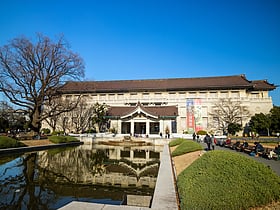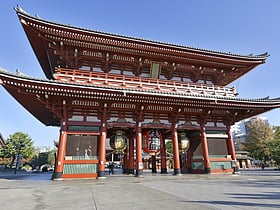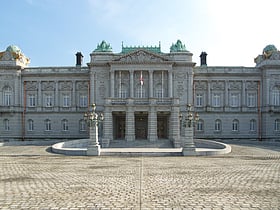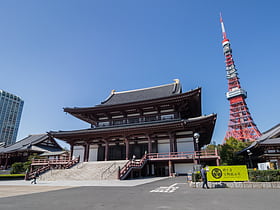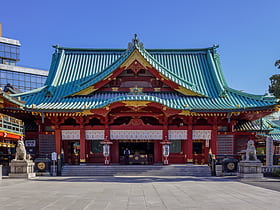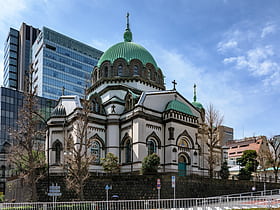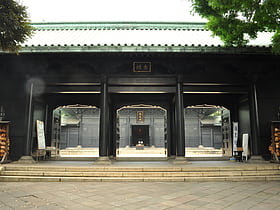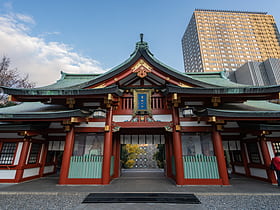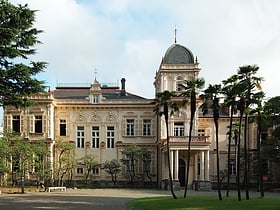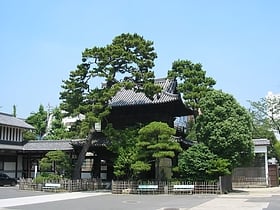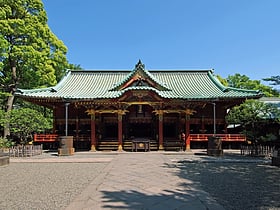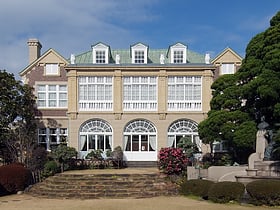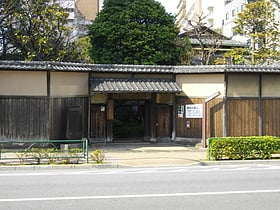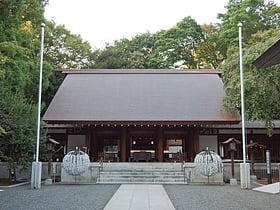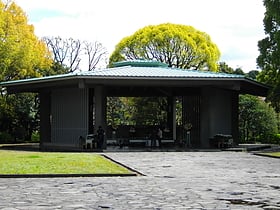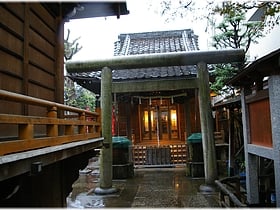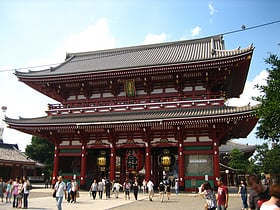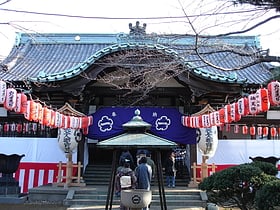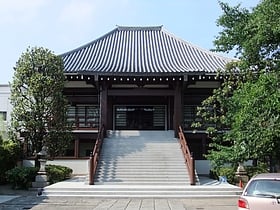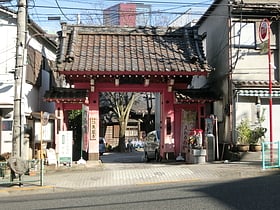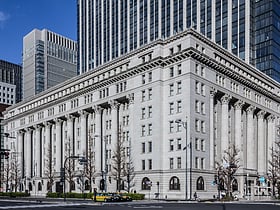Tokyo: Historical Place
Places and attractions in the Historical place category
Categories
- Museum
- Park
- Temple
- Art museum
- Sacred and religious sites
- Neighbourhood
- Shopping
- Amusement park
- Theater
- Skyscraper
- Concerts and shows
- Universities and schools
- Buddhist architecture
- Specialty museum
- Nightlife
- Area
- Architecture
- Historical place
- Shopping centre
- History museum
- Garden
- Amusement
- Concert hall
- Sport
- Music venue
- Sport venue
- Theme park
- Music and shows
- Amusement ride
- Buddhist temple
- Arenas and stadiums
- Bridge
- Library
- Art gallery
- Modern art museum
- Event space
- Palace
- Dancing
- Tower
- Science museum
- Observation decks and towers
- Church
- Forts and castles
- Business center
- Botanical garden
- Convention center
- Entertainment district
- Sport complex
- City
- Cemetery
- Monuments and statues
Tokyo National Museum
Grand site for Japanese art and antiques The Tokyo National Museum, standing as a cultural beacon in the vibrant city of Tokyo, Japan, is the country's oldest and largest museum. Established in 1872, this prestigious institution is dedicated to preserving and displaying a comprehensive collection of art...
Sensō-ji
Historic temple to the goddess of mercy Sensō-ji, an ancient Buddhist temple located in the historic Asakusa district of Tokyo, Japan, is the city's oldest and one of its most significant religious sites. The temple, associated with the Bodhisattva Kannon, or Avalokitesvara, attracts millions of visitors...
Akasaka Palace
Akasaka Palace, also known as the State Guest House, stands as a majestic example of Western-style architecture in the heart of Tokyo, Japan. This grandiose structure, completed in 1909, serves as the official accommodation for visiting state dignitaries, offering a...
Zōjō-ji
Buddhist temple complex dating to 1622 Zōjō-ji is an iconic Buddhist temple located in the Minato district of Tokyo, Japan, offering a serene escape amidst the bustling cityscape. Founded in 1393 as the main temple of the Jodo sect of Japanese Buddhism, it has stood as a spiritual center for centuries...
Kanda Shrine
Enduring shrine with red and gold decor Nestled in the bustling district of Chiyoda in Tokyo, Japan, the Kanda Shrine stands as a serene oasis amidst the urban sprawl. Known in Japanese as Kanda Myojin, this Shinto shrine has been a spiritual cornerstone for the local community and visitors for centuries...
Holy Resurrection Cathedral
Nestled within the bustling metropolis of Tokyo, Japan, the Holy Resurrection Cathedral, also known as Nicholai-do, stands as a spiritual haven and architectural marvel in the Chiyoda special ward. This cathedral is the main cathedral of the Japanese Orthodox Church...
Yushima Seido
Yushima Seidō, is a Confucian temple in Yushima, Bunkyō, Tokyo, Japan. It was established in end of the 17th century during the Genroku era of the Edo period. Towards the late Edo period, one of the most important educational institutions of the shogunate, the Shōhei-zaka Gakumonjo, or Shōheikō, was founded on its grounds.
Hie Shrine
The Hie Shrine is a Shinto shrine in Nagatachō, Chiyoda, Tokyo, Japan. Its June 15 Sannō Matsuri is one of the three great Japanese festivals of Edo.
Kyū-Iwasaki-tei Garden
Kyū-Iwasaki-tei Garden is located in Taitō, Tokyo. It is the former estate of the Iwasaki clan who were the founders of Mitsubishi.
Sengaku-ji
Sengaku-ji is a Buddhist temple belonging to the Sōtō school of Japanese Zen located in the Takanawa neighborhood of Minato-ku, near Sengakuji Station and Shinagawa Station, Tokyo, Japan.
Nezu Shrine
Shrine with torii-lined pathways Nezu Shrine is a Shinto shrine located in the Bunkyō ward of Tokyo, Japan. Established in 1705, it is one of the oldest places of worship in the city, and several of the buildings on the shrine grounds have been designated as Important Cultural Property.
Hatoyama Hall
Hatoyama Hall, also known as the Otowa Palace, is a Western-style residence in Bunkyō, Tokyo commissioned in 1924 by Ichirō Hatoyama, and it was here that he helped form the present Liberal Democratic Party.
Yokoyama Taikan Memorial Hall
Yokoyama Taikan Memorial Hall is located in the former residence of Nihonga artist Yokoyama Taikan, overlooking Shinobazu Pond in Taitō, Tokyo, Japan. It was opened in 1976 and is operated by a foundation directed by his descendants.
Nogi Shrine
Nogi Shrine was established on November 1, 1923 and dedicated to General Nogi Maresuke and his wife Nogi Shizuko after their death on September 13, 1912.
Chidorigafuchi National Cemetery
Chidorigafuchi National Cemetery is a national Japanese cemetery and memorial for 352,297 unidentified war dead of the Second World War, located near the inner moat of the Imperial Palace and Yasukuni Shrine in Tokyo, Japan.
Maruyama Shrine
Maruyama Shrine is a Shinto shrine in Takanawa, Minato, Tokyo, Japan. The shrine was established in 1179.
Hōzōmon
The Hōzōmon is the inner of two large entrance gates that ultimately leads to the Sensō-ji in Asakusa, Tokyo. A two-story gate, the Hōzōmon's second story houses many of the Sensō-ji's treasures.
Yūtenji
Yūtenji is a temple of the Pure Land Sect of Buddhism in Nakameguro, Meguro, Tokyo, Japan. In 1718, the 3rd year of the Kyōhō era, the 36th Buddhist monk of Zōjōji called Yūten died.
Zenshō-an
Zenshō-an is a Buddhist Rinzai Zen temple, located in Taitō, Tokyo, Japan. It has a large collection of Japanese yūrei paintings, which are normally exhibited in August, the traditional month of spirits and ghosts.
Gyoran-ji
Gyoran-ji, formal name Suigetsu-in Gyoran-ji, is a Buddhist temple in 4 Mita, Minato, Tokyo, Japan. It is located in the mountain side of Tsuki no Misaki.
Meiji Seimei Kan
Meiji Seimei Kan is a building in Marunouchi, Tokyo, Japan.
Map

